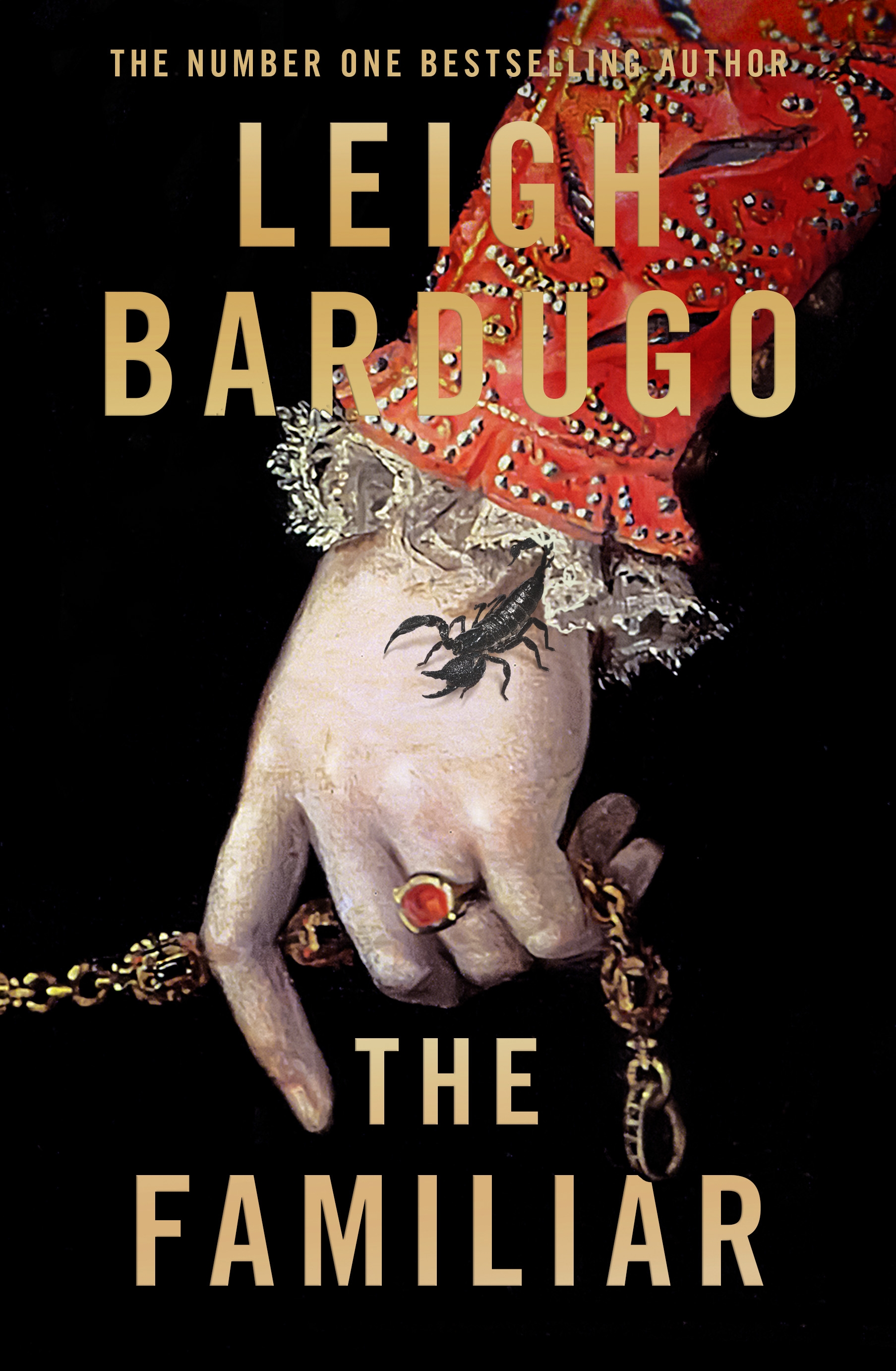You are viewing your 1 free article this month. Login to read more articles.
Leigh Bardugo on her new historical fantasy novel set during the Spanish Inquisition
Leigh Bardugo‘s latest adult fantasy novel, set during the Spanish Inquisition, is a slice of history with a fantastical twist.
Leigh Bardugo has reigned in the fantasy genre since the publication of her début novel Shadow and Bone in 2012, the first in a YA fantasy trilogy. The world and its characters grew beyond the trilogy into the Six of Crows duology and the King of Scars duology, short-story collections The Lives of Saints and The Language of Thorns and the “Shadow and Bone” Netflix series. The darker Alex Stern series followed with Ninth House and Hell Bent, Bardugo’s first adult fantasy novels set at Yale University, where the author herself studied.
The Familiar is Bardugo’s third adult fantasy novel and, like the Alex Stern series, is set in the real world with a fantastical twist. “I don’t think I could have written this book if I hadn’t written Ninth House and Hell Bent first”, explains Bardugo over video call from her home in Los Angeles. “I think they prepared me for this, but [The Familiar] is the first book where I’ve hired a research assistant, and I also had two professors read the manuscript, which was quite humbling.”
Set in 16th-century Madrid during the reign of King Philip II, The Familiar follows Luzia, a servant with enchanting and powerful magical abilities, who must conceal her Jewish heritage from the Inquisition. The Inquisition lasted centuries, spanned countries, but is perhaps best known by its manifestation in Spain where a judicial institution, ostensibly formed to combat heresy, remained for more than 300 years. During this period, thousands were executed, and the Jewish community was expelled from Spain by royal decree in 1492. Some Jewish people, called conversos, converted to Catholicism in a bid to avoid persecution.
I have this entirely missing branch of my family because of the Inquisition. My ancestors were expelled in 1492
This is the backdrop of Luzia’s story, a society where intolerance is rife and non-conformity is quashed. But Luzia’s is ambitious and so when her mistress Valentina discovers her magical abilities, Luzia uses the opportunity to rise from her life as a servant. Her renown quickly grows as whispers run throughout Madrid telling of a girl who can perform miracles. Soon, she captures the attention of the avaricious Víctor de Paredes and his servant Guillén de Santángel. To rise in the esteem of the court, Víctor becomes Luzia’s patron and enters her into a deadly tournament of miracles run by Antonio Pérez, the king’s disgraced former secretary. The contestants, seemingly blessed with powers from God, must compete to impress Pérez and win an audience with King Philip II. As the tournament progresses, desire pulses beneath the danger as Luzia’s relationship with Santángel, a strange man with unerring magical abilities, begins to blaze in what Bardugo has described online as her “most romantic” novel yet.
Bardugo had wanted to write a story about a woman with magical powers and a familiar “for a long time” and choosing to set this story during the Spanish Inquisition was deeply personal: “I have this entirely missing branch of my family because of the Inquisition. My ancestors were expelled in 1492. We know that some stayed and became conversos, and it’s as if that branch was pruned from the tree. Writing this book was a way to use fiction to make it bloom again.”
Magic derived from language
As well as giving voice to a missing part of her family, Bardugo highlights a nearly dead language in The Familiar. Luzia’s magic is derived from Ladino, a language originally spoken by the Jewish community in Spain that spread throughout the diaspora after their expulsion. The magic is channelled through Ladino refranes that “are essentially idioms, sayings and proverbs which still exist today”.
I think that the ability to look at someone and see their humanity—as opposed to seeing religion, culture or borders—is something we are in danger of losing
Bardugo, born in Israel and raised in Los Angeles, had one such proverb “rattling around in my head” while she was growing up. It translates to: “Whoever doesn’t laugh, doesn’t bloom.” She explains: “For me, when I started pulling together the magic system of this world, I wanted these refranes to be a way Luzia connected with her people lost to exile, to her own fractured history, because, for me, writing the book accomplished those things as well.”
Luzia’s story is in part inspired by the real life of Lucrecia de León, who was imprisoned by the Inquisition for years after her prophetic, seemingly miraculous dreams began to predict the fall of King Philip II. “Many people believed that her power of prophecy was divine, that angels were speaking to her. There was conflict between the idea of heresy and what people viewed as a potential miracle,” says Bardugo. Mention of De León “vanishes from the historical record” after her sentencing to a convent.
The Familiar is a rich, enticing story in which the fantastical is delicately spun against the political machinations of King Philip II’s court. But the novel’s themes of power and intolerance resonate, unintentionally for Bardugo, with contemporary events: “I was writing to a time of intolerance and I think that’s something we see plenty of now, but I think that the ability to look at someone and see their humanity—as opposed to seeing religion, culture or borders—is something we are in danger of losing.”
The novel was conceived as a romance “from the start”, but Bardugo was “hesitant to use that word because I know that [it] means different things to different people… I think there is a certain amount of disdain too when people talk about romances, which I’ve always found strange given how much time we spend in our lives looking for connection”.
Dedicated fandom
Bardugo’s novels, particularly the Shadow and Bone trilogy and Six of Crows duology, have birthed a dedicated fandom, and some of the moments in The Familiar “echo earlier scenes” in her oeuvre for those who enjoy the “deep dive” into her work. However, Bardugo cautions that fandom is a “double-edged sword [because] we live in a time when some of the boundaries and borders in these parasocial relationships have broken down”.
Although Bardugo loves “connecting with readers”, and maintains that it is “one of the unexpected and joyful parts” of writing, finding a way to interact with fans on her own terms has been “very challenging” and she now primarily communicates any news on her Instagram account or via a newsletter.
When I ask Bardugo whether the recent growth in the science-fiction and fantasy genre indicates a change in cultural perception about books that have historically been sidelined, she responds: “No. I think that any time you start to move the needle on culture, any time the market starts to respond to a given demographic taste, there’s always a kind of panic that ensues… People have been sneering at science fiction, fantasy and horror since I was a kid, for as long as I can remember.”
But Bardugo lays down the gauntlet for those “who have such contempt” for the genre: “Let me curate a list for you. Let’s have a talk. Let me find out what you like to read, what literary fiction you like to read, what poetry you like to read and then let’s have a conversation.”











